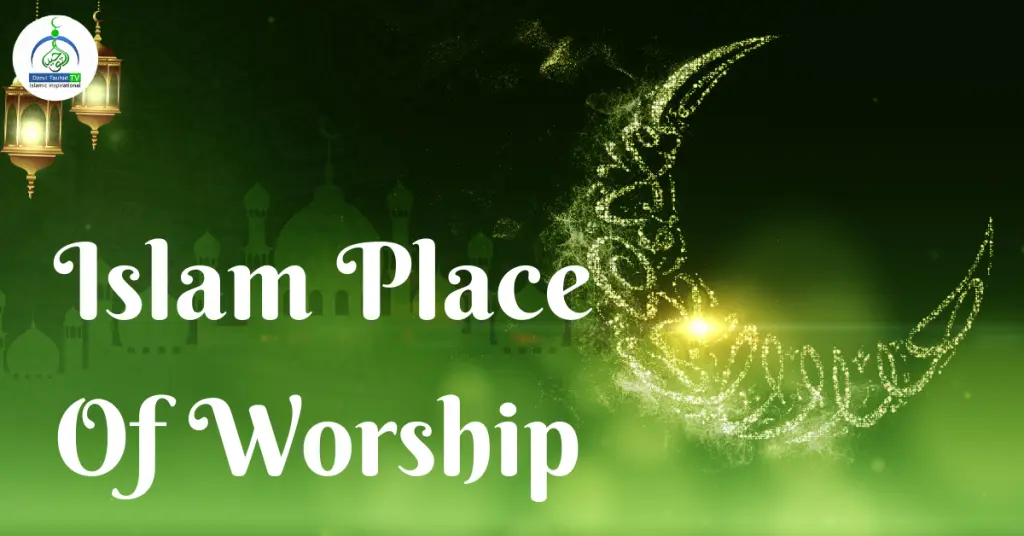
Exploring the Significance of Islam’s Places of Worship is very important. Masjids, the name for these churches, are not only places where people can pray together but also places where people can grow spiritually and get to know each other better. This article goes into detail about the importance of Islam’s holy places, including their architecture, traditions, and the big part they play in the lives of Muslims all over the world.
List of Islam’s Places of Worship
Here are some:
1. The Mosque: A Sanctuary of Unity and Prayer
The mosque, or “masjid” in Arabic, is without a doubt the most important place of prayer in Islam. Muslims can come together in these holy places to pray and think, and they are meant to build a feeling of community. There are many different types of mosques, from the grand Masjid al-Haram in Mecca to the famous Prophet’s Mosque in Medina. They are all different sizes and styles of architecture.
2. The Symbolic Kaaba: Mecca’s Spiritual Epicenter
At the center of Masjid al-Haram is the Kaaba, a cube-shaped building with a black silk and gold curtain around it. During their daily prayers, Muslims all over the world face the Kaaba, which represents a single direction of worship. It is thought that the Prophet Ibrahim (Abraham) and his son Isma’il (Ishmael) built this holy building. It is a powerful symbol of unity for the Muslim community.
3. The Grandeur of Islamic Architecture: Aesthetic Marvels
Islamic places of worship are more than just places to pray. They are works of art that show how culturally and artistically rich the Muslim world is. These holy places are marked by intricate geometric designs, spellbinding calligraphy, and tall minarets. Islamic building is naturally very beautiful. The Blue Mosque in Istanbul, Turkey, and the Sheikh Zayed Grand Mosque in Abu Dhabi, UAE, are two examples of this.
4. The Tranquil Gardens of Islamic Worship: A Spiritual Oasis
In addition to prayer rooms and minarets, many mosques have peaceful gardens where people can go to relax. These green areas are meant to help people feel calm and think, which fits with the Islamic belief that people should connect with nature. The Badshahi Mosque in Pakistan and the Alhambra in Spain are great examples of how buildings and nature can work together in harmony.
5. Diversity in Islamic Places of Worship: Beyond the Mosque
Even though mosques are where most Muslims pray, there are other holy places that are very important to Muslims. The zawiya, a Sufi shrine or meeting place, is where spiritual lessons and community building happen. Also, people come to the graves of holy people, like the Shrine of Imam Hussein in Karbala, Iraq, to find spiritual comfort and a link to their faith.
6. Friday Prayers: The Weekly Congregation
One of the pivotal moments in the Islamic week is the congregational Friday prayers, known as Jumu’ah. Muslims gather at mosques for this special prayer service, where a sermon is delivered, fostering a sense of community and shared spiritual experience. The collective nature of Jumu’ah prayers reinforces the unity and strength of the Muslim ummah (community).
7. Islamic Centers: Hubs of Education and Community Engagement
In addition to being places of worship and prayer, Islamic schools are very important to the community. There are often educational programs, community events, and social services at these sites. These centers serve many purposes, such as bringing people of different religions and cultures together. The Islamic Cultural Center in New York City and the King Fahad Mosque in Los Angeles are two examples.
8. Technology and Worship: Virtual Connection in the Digital Age
In today’s world, technology has become an important part of worship for many Muslims. People from all over the world can connect with their faith through live prayer streams, virtual tours of holy places, and online lectures. There are some good things about these new technologies, but they also make me wonder how they will affect the traditional community parts of Islamic worship.
9. Challenges and Opportunities: Preserving Sacred Spaces in a Changing World
As the world evolves, Islamic worship places face challenges and opportunities. Preservation of historical mosques, adapting to changing demographics, and addressing the environmental impact of these structures are pressing issues. Finding a balance between tradition and modernity is crucial to ensure that these sacred spaces continue serving as spiritual anchors for future generations.
Conclusion :
In the complex religion of Islam, places of worship are not just buildings; they are also spiritual havens that cross countries and cultures. Muslims find peace, unity, and a link with God inside the walls of a mosque, in the gardens of a shrine, or in the halls of an Islamic center. As these holy places change, they are very important for promoting understanding, tolerance, and a sense of shared humanity in a world that is always shifting.